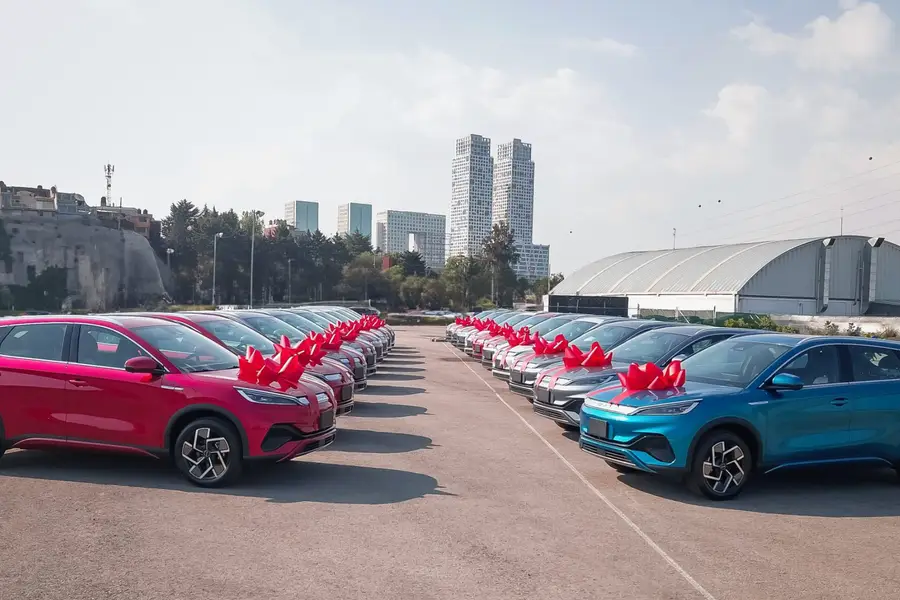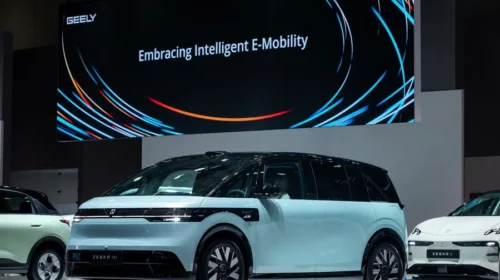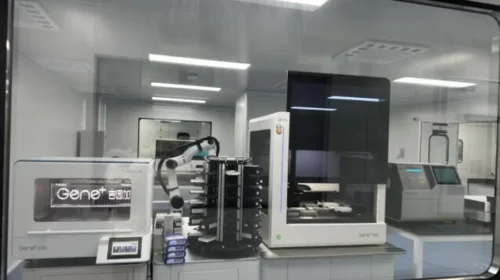BYD hits tariff roadblock after ramping up Mexico sales

The Mexican government’s plans to raise tariffs on Chinese-made cars to 50% could stall BYD’s growth engine in the North American market
Key Takeaways:
- The Chinese car maker supplies nearly half of all electric vehicles sold in Mexico
- BYD has shelved plans to build a factory in Mexico and is much more exposed to higher import tariffs than its U.S. rival Tesla
By Lee Shih Ta
Chinese electric cars have become a common sight on the streets of Mexico as they glide through busy traffic. But with new trade ructions, the road ahead could be bumpy.
Mexico has announced plans to slap 50% tariffs on car imports from countries that are not covered by its free trade deals, including China. The measures, which apply to both conventional and electric vehicles, would hit foreign brands that sell imported models, such as Tesla (TSLA.US) and BYD Company Ltd. (1211.HK; 002594.SZ), potentially reshaping the region’s auto market.
The Mexican government cited the need to protect local jobs, but industry experts saw the higher tariffs as a move to mollify the United States.
Flavio Volpe, president of the Canadian Automotive Parts Manufacturers’ Association, told Reuters that the Trump administration would look “very favorably” on the decision, which would help U.S. automakers compete with BYD.
Tesla also relies on overseas imports, but the increased tariffs would inflict much more damage on China’s BYD.
Tesla operates a factory in Texas and has proposed building a giant complex in Monterrey, Mexico, that could allow production capacity to be shifted to North America. Since Mexico, the United States and Canada are members of a three-way trade agreement, goods sourced in the region can qualify for zero tariffs if they comply with the deal’s rules of origin.
Targeting Chinese cars
Meanwhile, BYD finds itself in a more exposed position. The Chinese car maker outlined plans in 2023 to build a plant in Mexico, but the project ran into opposition from Mexican officials who feared a green light for the factory could anger U.S. President Donald Trump and strain bilateral trade ties. When it shelved the plan, BYD blamed uncertainty over Trump’s trade policies.
The market stakes are higher for BYD. Mexico is a more critical market for the Chinese car maker than for Tesla, as a potential bridgehead into North America. Since entering Mexico in late 2023, BYD’s sales have rocketed. The company sold about 40,000 vehicles there last year, accounting for nearly half of all sales of electric cars and plug-in hybrids in the country. In August, BYD said its sales in Mexico had doubled in the year to date.
As growth in Europe slows, Mexico has taken on a bigger significance for BYD, but the tariffs could stall that momentum. For Tesla, the U.S. market remains paramount, and Mexico carries much less weight in revenue and profit terms compared with BYD.
The Chinese car maker’s latest earningstestify to an increasing reliance on overseas income. Revenues rose 23% in the first half of this year to 371.28 billion yuan ($52.23 billion) from the same period a year earlier. Overseas revenue outpaced the topline figure, rising 50.5% to 135.4 billion yuan, about 36.4% of the total income. Higher selling prices in some overseas markets have thus become a key growth driver.
The outlook for European sales has darkened since the European Union imposed anti-subsidy tariffs on China’s battery-powered electric vehicles in the second half of 2024. BYD’s tariff rate is about 17%, plus a 10% base duty, squeezing margins. As European growth slows, the company will look towards North America, especially Mexico, for outward expansion.
In search of political solutions
Reviving the plan for a Mexico factory could be a wise move, but that path is also strewn with obstacles.
While Mexican officials opposed the plan under U.S. pressure, Beijing has also had its doubts. China delayed its approval for the project this year citing concerns that proprietary technology for vehicle components and systems could leak through the supply chain into the hands of U.S. competitors.
Meanwhile, U.S. automakers have voiced concern about the risk of Chinese cars entering their home market through the back door via Mexico.
Beijing has already characterized Mexico’s move as a pro-U.S. gesture and has threatened countermeasures. At the same time, a new round of U.S.-China trade talks has begun in Spain, with both sides trying to increase their leverage at the negotiating table.
With China’s domestic price wars unresolved and trade barriers mounting, BYD’s earnings are under pressure. First-half net profit rose 14% to 15.51 billion yuan, but second-quarter profit was only 6.36 billion yuan, a year-on-year drop of nearly 30%.
Investors appear to have priced in the problems. BYD’s stock has fallen from about HK$158 in May to around HK$108, taking its price-to-earnings (P/E) ratio to about 13.2 times. While BYD remains a core player in the EV sector, it must brace for tariff and policy shocks, with political risks looming large.
To subscribe to Bamboo Works free weekly newsletter, click here






